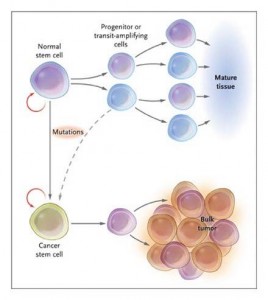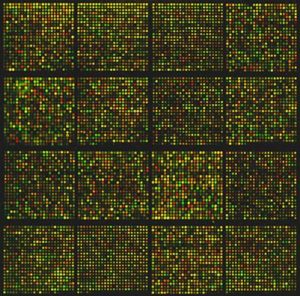Acute Lymphocytic Leukemia (ALL)
is a cancer of blood cells that originates in the bone marrow, the soft, spongy inner portion of certain bones. The cancerous cells in leukemia are the white blood cells (leukocytes).
 Leukemia develops when a blood cell undergoes a transformation into a malignant cell – one capable of uncontrolled growth. It begins to multiply excessively in the marrow and crowds out the good blood cells that carry oxygen to the body’s tissues, fight infections, and help wounds heal. Leukemia can also spread from the marrow to other parts of the body.
Leukemia develops when a blood cell undergoes a transformation into a malignant cell – one capable of uncontrolled growth. It begins to multiply excessively in the marrow and crowds out the good blood cells that carry oxygen to the body’s tissues, fight infections, and help wounds heal. Leukemia can also spread from the marrow to other parts of the body.
A malignant transformation can happen at any stage of cell development. Most leukemia’s fall into one of two general groups: myelogenous leukemia and lymphocytic leukemia. Physicians also classify leukemia’s according to whether they are acute or chronic. In acute leukemia’s, the malignant cells, or blasts, are immature cells that are incapable of performing their immune system functions. The onset of acute leukemia’s is rapid. Chronic leukemia’s develop in more mature cells, which can perform some of their duties but not well. These abnormal cells may increase at a slower rate, so the disease may develop more slowly than in acute cases.
Causes
The causes of A.L.L. are unknown yet some increased risk factors for A.L.L. may be associated with prolonged exposure to high doses of radiation, toxic chemicals, chemotherapy drugs, and a history of other cancers in the lymph system.
Incidence
About 31,000 new cases of leukemia are diagnosed in the United States each year.
Signs & Symptoms 
Early symptoms may include fatigue, weakness, weight loss without dieting, fever, repeated infections, paleness, and enlarged lymph nodes.
Screening & Diagnosis
No substantial screening tests are available and early detection can be difficult. Physical examination will identify swollen areas for biopsy tests. Other tests include blood and antibody analysis, bone marrow biopsy, and special staining of blood cells to confirm a cancer diagnosis.
Treatment
The use of clinical trials is the most effective treatment method. Clinical trials may include chemotherapy, radiation therapy, and/or immunotherapy
In most cases, people who develop A.L.L. have no known risk factors. Scientists do know that most types of leukemia are associated with gene mutations (alterations in the DNA of the diseased cells). However, in the majority of cases it is not clear what causes those mutations.
Information gathered in part from Roswell Park Cancer Institute and Memorial Sloan Kettering Cancer Center.
